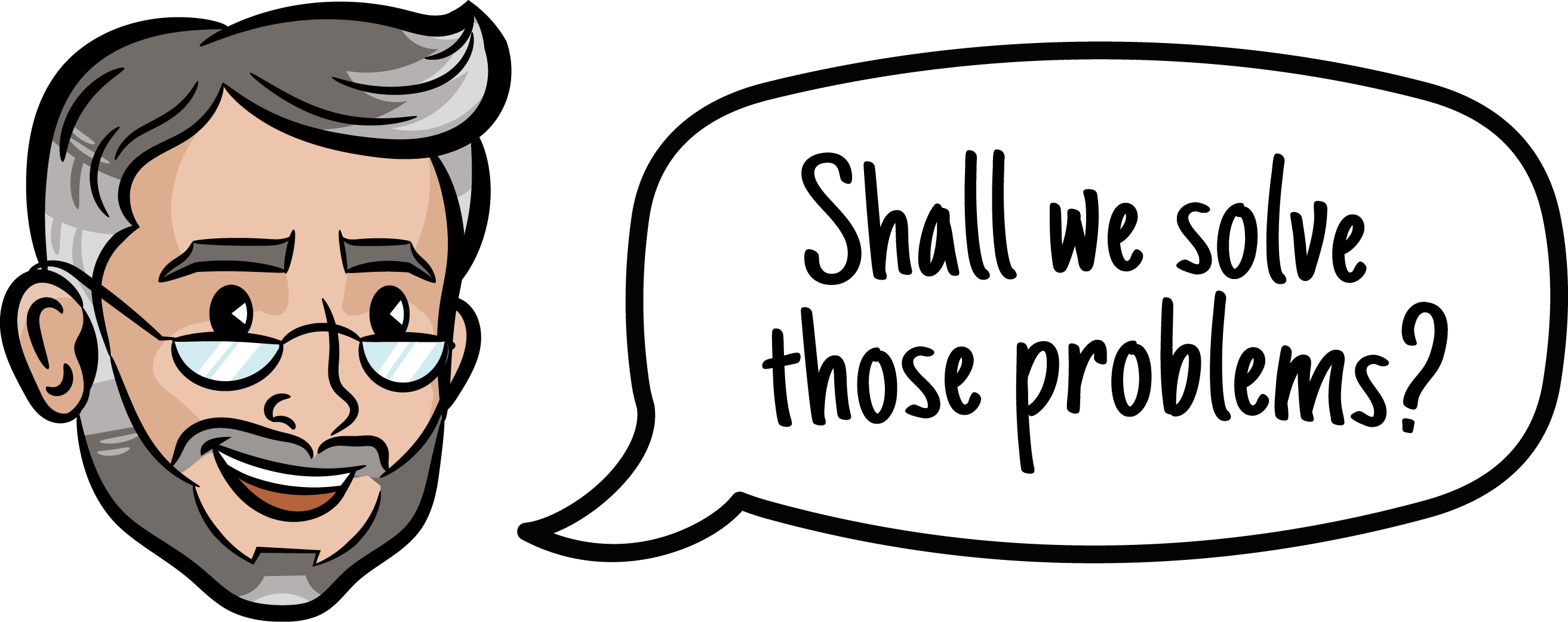Table of Contents
Sales Principles & Pitfalls from Iconic Sales Movies
Setting the Strategic Stage: Why Movies Matter for the C-Suite
The Foundation of Growth: Strategic Lead Generation & Qualification
Navigating the Sale: Strategic Frameworks and Negotiation
The High-Pressure Environment: Pitfalls and Responses
Leading the Way: Ethical Sales Leadership and Team Motivation
The Long-Term View: Value, Relationships, and Sustainable Revenue
Lessons for Today’s C-Suite: Applying Cinematic Insights
Conclusion: Write Your Own Success Story
More Useful Posts from Sales Funnel Professor
Sales Principles & Pitfalls from Iconic Sales Movies
What if some of the most powerful, hard-won strategic sales lessons aren’t buried in dense business tomes, but played out in vivid, dramatic detail on the silver screen? For C-suite leaders tasked with driving revenue growth, the world of iconic sales cinema offers more than just entertainment; it presents a series of compelling, often brutal, case studies in strategic planning, execution, and the high cost of getting it wrong—offering real-world sales principles from iconic movies.

Moving beyond simple plot summaries, films like Glengarry Glen Ross, The Wolf of Wall Street, and Boiler Room serve as unexpected mirrors reflecting fundamental business truths and common, costly sales pitfalls. They offer a unique lens through which top-level leaders can analyze strategic decisions related to lead generation, team motivation, ethical conduct, and the very definition of sales success. The dramatic tension of these narratives amplifies the consequences of strategic choices, making the lessons resonate long after the credits roll.
This exploration is specifically tailored for the busy C-suite executive. It’s not about tactical sales tips for individual reps, but about extracting high-level strategic insights relevant to steering an entire sales organization towards sustainable revenue growth. By dissecting the cinematic drama, we can bridge the gap between fictional extremes and real-world sales challenges, uncovering sales principles from iconic movies that today’s strategic decision-makers can apply. These films, in their raw depiction of ambition, pressure, and sometimes dubious ethics, provide cautionary tales and unexpected validations for strategic approaches that prioritize long-term value and integrity.
Setting the Strategic Stage: Why Movies Matter for the C-Suite
It might seem counterintuitive to look to Hollywood for strategic business insights—especially for leaders operating at the highest levels. Yet, iconic sales films, despite their heightened reality and dramatic license, often distill complex dynamics into potent, digestible narratives. Rather than relying on academic theory, they spotlight the raw human element and the systemic impact of good and bad sales strategies — offering a dramatized, but instructive, view of real-world consequences.
Through sharp dialogue and intense scenarios, cinematic stories compel us to confront critical leadership questions: What drives behavior under pressure? How do systems break under the weight of unethical choices? What cultural signals erode trust and long-term value? These aren’t just theoretical musings — they directly inform brand reputation, employee retention, customer loyalty, and shareholder value. For the C-suite, such fictional case studies serve as a surprisingly relatable proving ground to test and examine the implications of strategic choices before they unfold in real life. Sales cinema, when viewed through this lens, becomes less about entertainment and more about executive-level insight rooted in sales principles from iconic movies.
The Unexpected Strategic Value of Iconic Sales Cinema
What makes these films so instructive is not just their storytelling—it’s their clarity. A textbook may outline the importance of lead qualification, but seeing the fallout from poor leads in Glengarry Glen Ross delivers that message viscerally.
In The Wolf of Wall Street, explosive growth comes at the cost of collapse, revealing how short-term success built on unethical foundations inevitably crumbles. Similarly, Boiler Room exposes the dangerous trade-off between speed and sustainability when high-volume sales tactics disregard quality and truth.
Rather than offering a checklist, these narratives embed principles in emotionally resonant arcs. For leaders, that makes the insights harder to ignore—and far easier to remember.
Moving Beyond Plot: Extracting High-Level Business and Sales Principles
It’s not about who closed the biggest deal. The real value lies in understanding the strategic systems—or lack thereof—that shape outcomes. That means analyzing how leads are sourced and qualified, how motivation is engineered, whether ethics are central or optional, and whether customer relationships are transactional or enduring.
These aren’t granular sales tactics. They are foundational elements of go-to-market strategy, organizational design, and cultural alignment—concerns that belong squarely in the C-suite.
Targeting the C-suite: Lessons for Revenue Growth and Strategic Decision-Making
Revenue growth doesn’t just hinge on effort. It’s shaped by the strategic scaffolding supporting the sales engine. The stories reveal what happens when that scaffolding is weak: flawed lead generation clogs the pipeline, misaligned incentives create toxic behavior, and short-termism replaces vision.
However, they also suggest what works. Leaders can take away powerful reminders of how integrity, qualification, and a customer-first approach drive lasting results. These stories become tools to sharpen strategic judgment around resource allocation, cultural shaping, and customer value creation.
Bridging the Gap: Connecting Cinematic Drama to Real-World Sales Challenges
While Hollywood naturally amplifies the stakes, the core dynamics—pressure to perform, motivation dilemmas, cultural toxicity, and ethical gray zones—are all too familiar to real-world organizations.
Viewing these dramatized struggles gives leaders distance, allowing them to recognize similar symptoms in their own companies. It creates space for reflection and insight, unclouded by immediate pressure or bias.
Overview of Key Films and Their Unique Insights
- Glengarry Glen Ross: A harsh look at what happens when a sales team is crushed under poor lead quality, unrealistic incentives, and transactional thinking.
- The Wolf of Wall Street: A rollercoaster of unethical leadership and systemic greed, revealing the inevitable crash of companies that prioritize velocity over value.
- Boiler Room: A cautionary tale of high-volume, low-integrity sales—where deceptive tactics lead to internal decay and external collapse.
Together, they serve as a case study anthology in what not to do—and, in reverse, what sales principles from iconic movies look like when reframed through a strategic lens.
The Foundation of Growth: Strategic Lead Generation & Qualification
Ethics must also remain central. Deceptive sourcing may deliver leads, but it damages trust, reputation, and future revenue—costs no spreadsheet can fully capture.
Every high-performing sales machine runs on quality leads. Without them, conversion suffers, morale dips, and predictable growth becomes impossible. Glengarry Glen Ross and Boiler Room highlight, in painful detail, the cost of poor prospecting.

In Glengarry, the infamous “Leads are weak!” debate reveals a systemic failure: reps are trapped, reliant on external sources, with no strategic control over lead quality. The fallout is predictable—wasted effort, internal conflict, and a demoralized team.
C-suite leaders must treat lead generation not as a marketing task, but as a strategic growth lever. This involves defining the Ideal Customer Profile (ICP), aligning marketing and sales, and investing in the tools and talent needed to generate leads that convert and retain.
In Boiler Room, volume replaces value. Lists are large, tactics are shady, and legitimacy is sacrificed. It’s a textbook example of what happens when activity is mistaken for strategy.
Navigating the Sale: Strategic Frameworks and Negotiation
Identifying a prospect is only the beginning. How your team guides them through the sale determines whether you build revenue or risk churn.
The iconic “Always Be Closing” mantra from Glengarry Glen Ross glamorizes pressure, but it’s strategically flawed. It prioritizes the seller’s goal while ignoring client fit, value alignment, and long-term outcomes. It’s a shortcut—and a dangerous one.
Transactional tactics (seen in all three films) are efficient in the short term but come at a high cost: trust erosion, misaligned expectations, and poor retention.
Modern frameworks like SPIN Selling, Challenger, or MEDDIC take the opposite approach. They prioritize understanding the buyer’s world and aligning your solution with measurable business impact. For the C-suite, choosing the right framework is a strategic decision that affects every aspect of revenue generation—from win rates to lifetime value.
Negotiation, too, must evolve beyond pressure tactics. Sustainable deals are rooted in mutual value, not manipulation. The chaos and desperation on-screen underscore what happens when teams are left without structured, strategic processes.
The High-Pressure Environment: Pitfalls and Responses
A common thread in all three films is the destructive impact of pressure-based sales cultures. Whether it’s the fear-driven contest in Glengarry Glen Ross or the greed-fueled environment in Boiler Room, the result is the same: short bursts of performance followed by systemic breakdown.
Manipulative incentives and aggressive targets may deliver quick wins, but they poison culture, increase churn, and push ethics to the breaking point.
Strategic sales leadership takes a different path. It fosters intrinsic motivation—driven by purpose, mastery, and autonomy. It replaces fear with coaching, competition with collaboration, and desperation with discipline.
Rather than merely setting targets, great leaders create systems that support sustainable performance. That means defining values, building enablement programs, and aligning recognition with strategic behaviors—not just closed deals.
Leading the Way: Ethical Sales Leadership and Team Motivation
At the heart of every sales organization is its leadership—and its values. When ethics are absent at the top, the rot spreads quickly. The Wolf of Wall Street and Boiler Room show this with brutal clarity.
Unethical leadership doesn’t just spark legal trouble. It creates toxic cultures where manipulation is rewarded, trust is non-existent, and retention is a perpetual challenge.
True leadership is strategic. It sets the tone through example, aligns incentives with long-term value, and builds a culture where reps feel safe, supported, and accountable.
Motivation, too, must evolve. The best sales leaders understand that commission is only one piece. People crave growth, purpose, belonging, and recognition. Build a system that reflects this, and you’ll cultivate a loyal, high-performing team with staying power.
The Long-Term View: Value, Relationships, and Sustainable Revenue
Perhaps the deepest insight from these films is the contrast between quick wins and lasting relationships. The cinematic obsession with immediate gain leads to collapse every time.
A strategic organization thinks beyond the close. It prioritizes:
- Client success over conversion rate
- Trust over transactional manipulation
- Reputation as a measurable strategic asset
Systems like CRM platforms and customer success teams aren’t just tools—they’re investments in long-term enterprise value. Ethical practices build the trust that sustains relationships. And those relationships, in turn, drive recurring revenue, referrals, and brand strength.
Metrics like Customer Lifetime Value, Net Promoter Score, and retention rate tell the real story—not just revenue spikes.
Lessons for Today’s C-Suite: Applying Cinematic Insights
It’s easy to dismiss these films as exaggerated. But beneath the drama lie timeless strategic lessons:
- Flawed lead strategies waste resources.
- Pressure cultures create ethical decay.
- Misaligned incentives destroy long-term value.
- Ethical leadership builds resilient revenue.
Modern leaders can use these stories as diagnostic tools. For example:
- When lead complaints arise, don’t double down on pressure—revisit ICP and scoring models.
- If churn is increasing, look beyond performance metrics and assess cultural and ethical alignment.
- Use real-time data—not anecdotes—to track strategic health across the sales organization.
Embed these lessons into onboarding, leadership coaching, and strategic planning. Doing so transforms cinematic fiction into a competitive advantage.
Conclusion: Write Your Own Success Story
The drama of the screen need not mirror your organization. Instead, use it as a reflective surface—a way to anticipate pitfalls, reinforce values, and guide strategy.
Because in the end, sales success isn’t about clever pitches or big closes. It’s about building a system where value, ethics, and strategic clarity create momentum that lasts.
Let the movies entertain you. But let their lessons guide your leadership.
More Useful Posts from Sales Funnel Professor
Here are additional resources to deepen your strategic sales insights:


